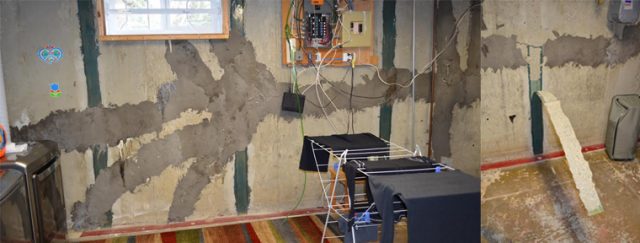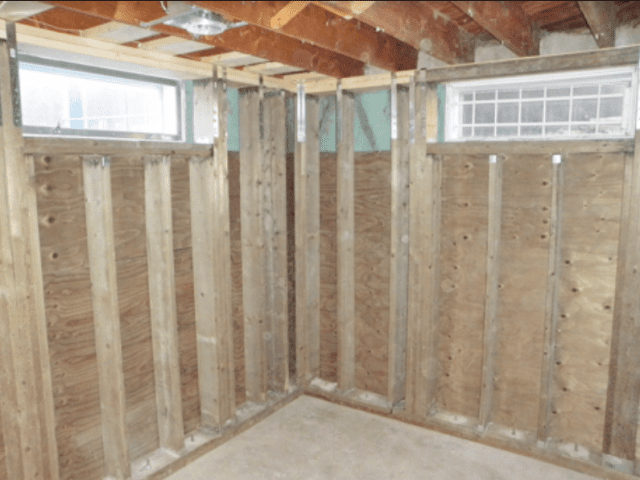Roles, Importance, and Benefits of Structural Engineers in Construction and Renovation
Key Takeaways About Structural Engineering and Foundation Repair
- Abarent Construction provides comprehensive structural engineering services with certified professionals who ensure proper foundation assessment and repair.
- Professional engineers must complete extensive education and training to receive their P.Eng designation.
- Engineering reports provide detailed analysis and specific repair recommendations based on scientific evaluation.
- Regular structural inspections help prevent costly foundation problems and maintain property value.
- Engineers use specialized tools and software to accurately assess foundation conditions.
- Professional engineering oversight ensures compliance with building codes and safety standards.
- Structural engineers maintain legal accountability for their work and recommendations.
Having a structural engineer and professional construction specialist involved in the repair process for your project can provide essential structural analysis and load calculations for your property. Your home foundation requires comprehensive site investigations and geotechnical reports to assess its structural integrity. Most homes were originally designed and constructed according to standardized building codes and safety standards. An engineer brings specialized material testing expertise and engineering consultations to every project so that we can evaluate where those standardized approaches need customization. Abarent is equipped with an APEGA Permit to Practice and an in-house engineer who performs thorough structural integrity tests to develop a customized solution for the underlying cause of the fracturing or settlement that is occurring.
Unfortunately in this industry we frequently encounter projects where competitors have attempted to repair a foundation using inadequate foundation design and construction methods that lack proper engineering oversight. It is essential to employ a qualified professional with extensive experience and proper credentials to ensure each project meets construction standards and protects your investment.
Basement Condition Before Professional Repairs
Basement Transformation After Engineering-Guided Repairs
Professional Qualifications and Requirements for Structural Engineers
An engineer is a qualified professional who specializes in structural analysis, design planning, and construction oversight for both existing and new structures. To become an engineer in Canada, professionals must meet and maintain these essential qualifications:
- Bachelor’s degree in Civil Engineering at an accredited post secondary institution (4 – 5 years).
- Work as an Engineer In Training (EIT) for a minimum of 2 years under someone with a Professional Engineer (P. Eng) designation.
- Successfully complete a professional practice exam in their respective province.
Once an engineer fulfills these qualifications, they receive their P. Eng designation and must adhere to their provincial code of ethics.
Essential Professional Credentials and Verification Methods
These are crucial elements to verify when confirming an engineer’s qualifications:
The APEGA Permit To Practice Requirements
“Any company that engages in the practice of engineering or geoscience in Alberta as part of its business must have a Permit to Practice with APEGA.” Company Permit To Practice. (n.d.). Retrieved February 24, 2017
Professional Engineering Stamp Requirements and Usage
The engineering stamp is officially issued by the provincial association and includes the engineering association’s seal.
An engineer applies their stamp when authenticating structural calculations and construction documents. Each stamp must include the engineer’s signature and authentication date.
Comprehensive Engineering Documentation and Reports
After conducting a thorough inspection of the foundation using specialized assessment tools, engineers can identify underlying structural issues through detailed site investigations and soil testing. They provide comprehensive remediation plans and a recommended course of action for foundation repairs supported by structural calculations. These detailed reports serve as essential construction specifications for contractors during the repair process and may be required for property transactions.
While contractors might offer inspection reports, they may recommend repairs that prioritize profit over necessity. Having a licensed engineer with professional liability insurance complete the assessment ensures that the recommended remediation plan focuses solely on essential structural modifications.
Professional Accountability and Engineering Ethics
Licensed engineers are bound by strict professional standards and their provincial governing body’s regulations. They maintain legal responsibility to prevent harm or loss resulting from their work. Having an engineer perform structural analysis and create detailed repair plans provides authoritative documentation that eliminates the need for additional contractor opinions.
Learn more about our comprehensive structural engineering services and quality control inspections and let us assist you with your project needs.
The Role of Structural Engineers in Foundation Assessment
Structural engineers employ advanced foundation assessment tools and conduct thorough site investigations. These professionals utilize specialized equipment like crack gauges and laser levels for precise measurements. Structural engineers detect subtle foundation settlement indicators through detailed monitoring. They analyze soil composition and evaluate its impact on structural integrity. Understanding early warning signs of foundation deterioration enables timely intervention and cost-effective repairs.
Structural Engineers and Building Code Compliance
Structural engineers ensure all construction meets current building codes and safety standards. They maintain expertise in evolving regulations and construction specifications. These professionals interpret complex technical requirements for property owners. Structural engineers prepare comprehensive project documentation. Consulting qualified structural engineering professionals prevents code violations and ensures proper permit approval.
The Impact of Structural Engineers on Insurance Claims
Structural engineers provide expert assessments for insurance purposes. Their detailed reports carry significant weight with insurance providers. These professionals conduct thorough damage evaluations and cost analyses. Structural engineers guide homeowners through claim documentation. Professional structural engineering assessments significantly impact property value and insurance coverage.
Structural Engineers in Renovation Projects
Structural engineers perform essential load calculations for safe renovations. They evaluate load-bearing structures before modification. These professionals design comprehensive support systems for open concepts. Structural engineers ensure additions maintain building integrity. Professional engineering oversight for basement modifications prevents structural issues.
The Role of Structural Engineers in Disaster Preparedness
Structural engineers assess building resilience against natural disasters. They recommend specific reinforcement measures for existing structures. These professionals design buildings to resist environmental stresses. Structural engineers develop safety protocols based on thorough analysis. Engineering-guided foundation repairs enhance structural disaster resistance.
Structural Engineers and Sustainable Construction
Structural engineers integrate sustainable materials into design specifications. They optimize structural efficiency for energy conservation. These professionals evaluate environmental impacts of construction methods. Structural engineers balance sustainability with building integrity. Understanding various engineering-approved repair techniques helps select environmentally conscious solutions.
The Importance of Structural Engineers in Historic Preservation
Structural engineers assess historic building integrity using specialized methods. They create preservation strategies maintaining architectural authenticity. These professionals employ non-invasive testing for heritage structures. Structural engineers integrate modern safety requirements with historical preservation. Professional underpinning methods preserve historic integrity while ensuring stability.
Structural Engineers and Modern Technology Integration
Structural engineers utilize advanced modeling software for precise analysis. They collaborate with construction teams through digital platforms. These professionals identify potential issues before construction begins. Structural engineers manage building lifecycles through technology. Advanced engineering drafting services provide accurate solutions for complex projects.
Important Information about Structural Engineering Services
- Structural engineers typically use specialized equipment including laser levels, crack monitors, and moisture meters during foundation inspections.
- Professional structural inspections should be scheduled every 3-5 years for residential properties.
- Structural engineers provide detailed documentation and expert testimony that significantly strengthens insurance claims for foundation damage.
- A comprehensive structural engineering assessment typically costs between $500 and $3,000 depending on property size and complexity.
- Structural engineers evaluate foundation condition through visual inspection, measurement tools, and soil analysis to determine repair needs.
- Modern structural engineers utilize CAD software, finite element analysis programs, and 3D modeling tools.
- A thorough structural inspection usually takes 2-4 hours to complete.
- Professional foundation repairs typically last 25-30 years when properly engineered and maintained.
- Experienced structural engineers conduct an average of 150-200 foundation inspections annually.
- Regular structural inspections can prevent approximately 70% of major foundation issues.

